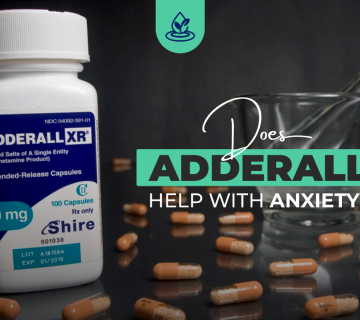Can a Psychiatrist Prescribe Medication?
In the world of mental health care, few questions carry as much weight as the decision to prescribe medication.
For those who find themselves in a psychiatrist’s office, it’s an important moment one that can bring relief on the way to stability.
But how does this come about? Can any professional assess the need for medication or is it the exclusive domain of psychiatrists?
In this blog post, we explore the nature of medication prescription in psychiatry and who can provide mental health medication.
In demystifying the process we help those dealing with the subject of mental health to understand their role, their provider’s role, and the collaborative essence of effective care.
The Psychiatrist’s Role
Knowing who can prescribe mental health medication begins with the role of the psychiatrist.
Psychiatrists are medical doctors who have not only attended medical school but have undergone extensive training in the diagnosis and treatment of mental illnesses.
Can a Psychiatrist Prescribe Medication?
So can psychiatrist prescribe medication? Yes, their training gives them the authority and expertise to prescribe medication as part of a comprehensive treatment plan.
Psychiatrists vs. Other Mental Health Professionals
What sets psychiatrists apart in their ability to prescribe mental health medication?
As opposed to psychologists, therapists, and counselors, psychiatrists have an important medical component to their education.
Because they are doctors with the authority to diagnose and treat diseases including those that affect the mind, their approach goes beyond talk therapy to incorporate pharmaceutical interventions.
When is Medication Called For?
Mental health conditions like depression, anxiety disorders, bipolar disorder and psychotic disorders usually benefit from a combined approach of therapy and medication.
Understanding how medication impacts these conditions is crucial for planning treatment effectively.
Benefits and Considerations of Medication
Medication can offer rapid relief from distressing symptoms, making daily life more manageable for those wrestling with mental illness.
Nevertheless, there are other things to consider.
These include but not limited to side effects, ongoing management and the patient’s own views about drugs in their lives.
Getting to Know the Legal and Ethical Process of Medication Prescription
Prescribing mental health medication is not a casual act; it is guided by a series of regulations and ethical considerations.
1. Regulations Governing Psychiatrists
State laws and professional guidelines shape how much a psychiatrist can prescribe.
The aim of these rules is to secure patients and ensure that drugs are used in a prudent manner considering safety and efficacy.
2.The Ethical Doctor-Patient Dynamic
When it comes to medication choices, it’s important to discuss them with the patient.
Will a psychiatrist prescribe medication on the first visit? On the first appointment, psychiatrists do not rush into prescribing drugs unless there is an emergency.
A psychiatrist will make sure to explain all the options before starting any pharmaceutical treatment.
This candid talk ensures the patient’s full involvement during care delivery and helps select treatment options, which are consistent with their objectives as well as values.
The Essential Role of Communication in Medication Prescribing
No prescription should be arbitrary especially when it comes to matters of the mind.
1. The Patient’s Informed Agreement
A patient must be provided with every single piece of information concerning the drug being thought about, its expected tendencies, likely outcomes on the consumer if any exist; and probably any alternative considered.
Informed agreement represents a shared decision-making process where the patient’s voice is central.
2. The Collaborative Treatment Plan
Effective mental health care is rarely a one-person show; it is a collaboration between the patient, the psychiatrist, and often, a broader team of professionals.
The psychiatrist, drawing on their medical and mental health expertise, can prescribe medication as a pivot to support the patient’s broader health and well-being.
Getting Professional Help When Mental Health Is a Concern
No matter if you are a mental health client or a loved one who cares, the best way to go about dealing with medication is to consult an expert.
There aren’t any universal answers to mental health and all that one can do is have a comprehensive assessment from a licensed psychiatrist.
The task of prescribing mental health medicine is arduous as it includes defined systems that aim at providing effective therapy that is also ethically sound.
This is a vital tool in psychiatric practice that can open up opportunities for healing and growth.
For patients and providers, trust, communication and understanding make the world of difference.
By gaining insight into the intricacies of psychiatrists’ roles in prescribing medications, people can better navigate their journey through treatment while actively participating in decisions concerning their mental well-being.
It’s all about encouraging this kind of involvement that drives not just access but quality care built around patient-centeredness.
For support and treatment, you can make an appointment at Atlantis Wellness Center today.
FAQ Section
Can a psychiatrist prescribe medication?
Yes psychiatrists can prescribe medication.
Can a psychiatric nurse practitioner prescribe medication?
Yes they can prescribe medication.
Can a psychiatric mental health nurse practitioner prescribe medication?
Yes they have the authority to prescribe medication.
Can therapists prescribe medication?
No therapists can’t prescribe medication.
Can a counselor prescribe medication?
No counselors can’t prescribe medication.
Can a psychiatrist prescribe pain meds?
Yes psychiatrists can prescribe pain medication as part of a treatment plan.







No comment